News
News
Chief economists warn downturn, chain bankruptcies next year from trade conflict
![Chief economists from around the world gathered at the 20th World Knowledge Forum for a session on Global Economy in Transition -- Global Economic Outlook that took place on Thursday in central Seoul. [Photo by Kim Ho-young]](https://file.mk.co.kr/meet/neds/2019/09/image_readtop_2019_771178_15694885733915904.jpg)
Chief economists from around the world gathered at the 20th World Knowledge Forum for a session on Global Economy in Transition -- Global Economic Outlook that took place on Thursday in central Seoul. [Photo by Kim Ho-young]
“The U.S.-China trade dispute, this is the number one risk that we see for the global economy and global credit market,” said Elena Okorochenko, managing director and head of Asia Pacific at S&P Global Ratings, one of the speakers for a session on Global Economy in Transition – Global Economic Outlook, on Thursday, at the 20th World Knowledge Forum hosted by Maekyung Media Group.
Okorochenko was joined by Robert Koopman, chief economist and director of the economic research and statistics division at World Trade Organization (WTO), and Bruce Kasman, managing director and chief economist at J.P. Morgan.
Koopman said in his presentation that WTO next week will release its updated trade forecast for this year and next year, and although he cannot share the numbers, it expects “significant weakness in both trade data and decline in GDP (gross domestic product) growth and that’s making trade prospects pretty negative these days.”
He added that there is policy uncertainty in particular as a result of trade tensions, “resulting in sagging business confidence, although tighter financial conditions have been eased a bit with some central bank action in the U.S. and European Union.” Koopman is also professor at the Graduate Institute in Geneva and serves as the WTO representative to the G20 Trade and Investment Working Group.
Kasman, who serves as global head of economic research at J.P. Morgan, one of world’s largest investment banks, also echoed concerns.
“Outlooks for future have dropped dramatically,” he said. “Our measures of that have gone to levels we haven’t seen since the European crisis between 2011 and 2012.”
![From left are Yi In-sill, president of Korean Economic Association; Robert Koopman, chief economist and director of economic research and statistics division at World Trade Organization; Elena Okorochenko, managing director and head of Asia Pacific at S&P Global Ratings, and Bruce Kasman, managing director and chief economist at J.P. Morgan. [Photo by Kim Ho-young]](https://file.mk.co.kr/meet/neds/2019/09/image_readmed_2019_771178_15694885733915905.jpg) 이미지 확대
이미지 확대From left are Yi In-sill, president of Korean Economic Association; Robert Koopman, chief economist and director of economic research and statistics division at World Trade Organization; Elena Okorochenko, managing director and head of Asia Pacific at S&P Global Ratings, and Bruce Kasman, managing director and chief economist at J.P. Morgan. [Photo by Kim Ho-young]
Amid rising concerns about the global economy amid escalating U.S.-China trade conflict, Britain’s exit from the European Union, and fluctuation in oil prices, prospects are that some countries or companies could face default next year.
Okorochenko noted that global leverage has increased quite significantly over the past 10 years and that the global economy might be nearing the end of the credit cycle, although it may get extension because of low-interest. But she expected some “significant defaults” not as severe as the global financial crisis 10 years ago.
Okorochenko did not mention where defaults will take place, but it can be assumed from “significant” that it could happen to major companies or countries.
The economist warned Chinese companies could face crisis, as they account for 30 percent of global corporate leverage. The good news, however, is that “most of the leverage is domestic” and “we don’t expect a contagion effect for the rest of the world.”
Koopman, who served as director of operations and chief operating officer for the United States International Trade Commission, overseeing the commission’s trade policy research and negotiation assistance to the President, the U.S. Trade Representative, and Congress, said the U.S.-China trade conflict is threatening the global economy and as a result companies are less confident and overall growth is slowed in not only the U.S. but also countries in Europe and Asia.
Kasman also warned that geopolitical uncertainty has led companies to have fear and uncertainty towards politics and that in case of China, company spending in the first half of the year has remained almost stalled. Kasman, who currently leads a team of 30 economists at J.P. Morgan that set economic and policy views, directs the investment bank’s flagship research publication Global Data Watch.
By Choi Jae-won and Lee Eun-joo

Prev
SM Entertainment to create K-pop inspired contents with Marvel

Next
Investment Titans Managing $1 Trillion from U.S. and Europe Converge

